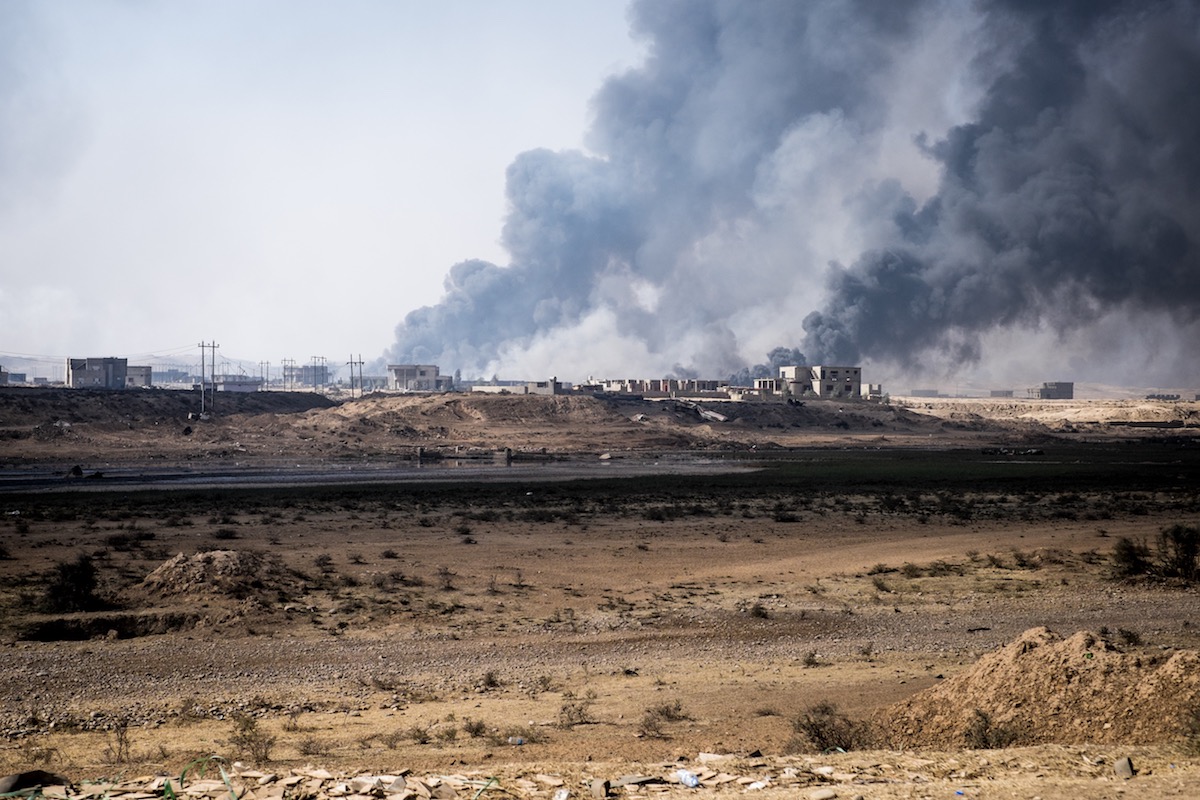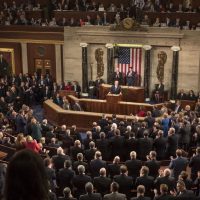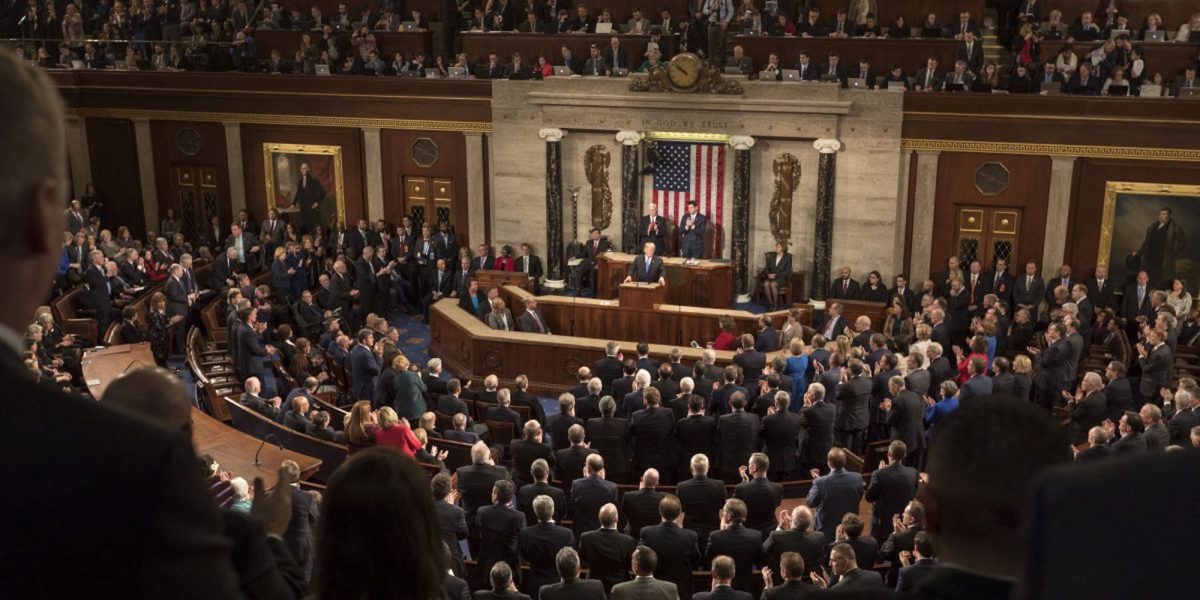“Weakness is the surest path to conflict, and unmatched power is the surest means of our defense.”
But is it?
President Trump spoke these words at his first State of the Union address, but they are not his alone. They represent nearly 100 years of American foreign policy, advanced by Republicans and Democrats. Sometimes it’s framed in less direct language, like Hillary Clinton’s “smart power,” but just beneath the surface is the assumption that our only path to peace is an unmatched capacity for violence.
You might even say this is how people the world over have understood conflict since civilization began.
There have been variations on this theme over the years, but always the same idea…
Kill or be killed.
If they hit us, we’ll hit back 10 times harder.
The only thing [insert enemy here] understands is power.
Preemptive strike.
Shock and awe.
Fire and fury.
According to the prevailing wisdom, all that prevents our enemies from destroying us is the sure and certain knowledge that we can destroy them.
Our determination to accumulate and exercise unmatched power has led us into half a dozen wars over the last several decades—some with no end in sight, like the undeclared war in Afghanistan or the War on Terror—along with countless “operations,” “interventions,” and proxy wars. It’s led the U.S. to maintain nearly 800 military bases around the world.
But does it actually deliver on its promise? Are we any less afraid? Has the pursuit of unmatched power ever managed to provide that long sought-after peace and security?
And where does it stop? How much “unmatched power” does one nation need before it’s enough to act as sufficient deterrent to tyrants and terrorists? If we build a nuclear arsenal capable of destroying the world five times over, will an arsenal that can destroy it 10 times over make us any safer?

What if the reality is that unmatched power unleashes rather than restrains violence—and that violence, no matter how necessary or justified it may be deemed in some cases, can never remake the world?
And for those of us—Christians, Muslims, and others—who revere the teachings of Jesus: would someone who taught his followers to turn the other cheek say that “weakness” is the surest path to conflict? Would he endorse the pursuit of unmatched power as the surest means of our well-being?
Or would he say that it’s possible to cling to your life so tightly that you end up suffocating it? That you lose the very thing you tried to gain?
Is it possible we’ve mistaken weakness for love, power for strength?
Is it possible that the greatest strength is found not in the pursuit of unmatched power, but in laying down our lives, in opening ourselves to “the other,” even to those we fear? 
Is this nothing more than utopian wishful thinking? Even I’m tempted to say, “This is all well and good for individuals to practice, but it makes for lousy foreign policy.”
But where has the alternative gotten us, after nearly a century of brinkmanship and war? Where has it gotten us in Iraq, after two invasions, a brutal insurgency, and then ISIS? Where has it gotten us in Afghanistan, after 16 years on the ground? Where will it get us in Syria? In North Korea? Iran?
There are no easy answers to these questions. Every geopolitical conflict is different, with its own complexities and challenges. But if, as a general rule, the pursuit of unmatched power has left behind a history littered with conflict, while peace and security remain elusive as ever, then maybe it’s time we pursue something else.
Maybe the surest path to conflict isn’t weakness, but our willingness to dehumanize others. And maybe unmatched love is a surer means of our well-being.
Photo courtesy The White House


